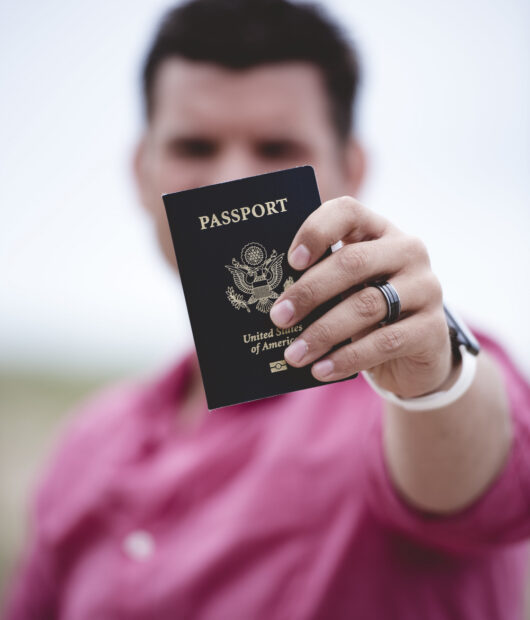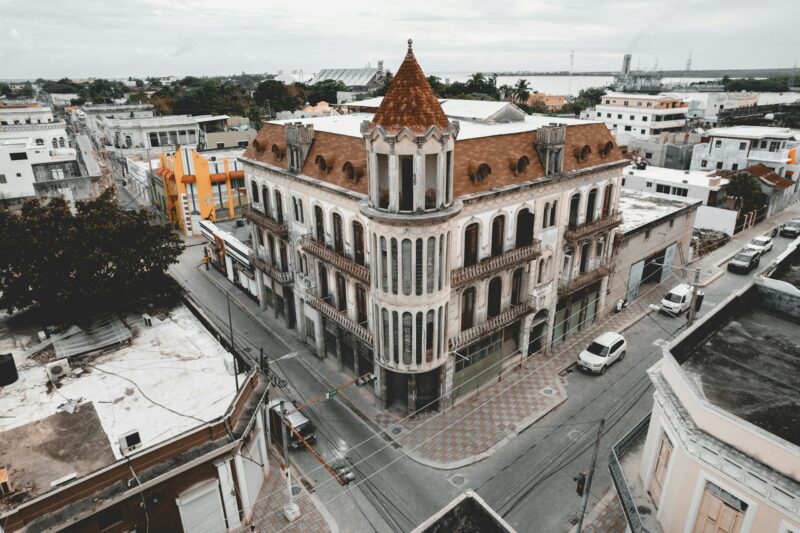
Simplify Your Travel with an Additional Passport and Alternative Citizenship
As your important business trip approaches, you discover that you need a visa. This involves filling out a lengthy form, possibly detailing every country you’ve visited over the past five to ten years. You might need to visit a consulate or embassy for an interview, and the visa could cost as much as your airline ticket. Additionally, you may have to send your passport to the consulate or embassy, potentially leaving you without it for two to three weeks. This situation leads you to reconsider the necessity of the trip and discourages you from bringing your family, as you wouldn’t want them to endure the same cumbersome process.
Due to political circumstances, citizens from many countries face travel difficulties and visa restrictions when trying to enter foreign nations. Conversely, nationals with passports offering easy access to most countries might still need visas for certain destinations or face challenges due to temporary travel restrictions caused by trade sanctions or geopolitical issues. They may also be vulnerable to terrorist threats or hostility based on their nationality. Even if a visa is granted, the process is often cumbersome, with your passport being unavailable during the visa stamping, which can delay your travels significantly.
What is Citizenship?
Citizenship defines the relationship between an individual and a nation-state, where the state grants specific rights to the citizen, such as voting, working, and owning property. In return, the citizen agrees to follow the laws and customs of the state. Citizenship helps to unite people under a shared identity.
Traditionally, citizenship—and the passports that come with it—has been obtained through birth, naturalization, or marriage. Naturalization is a process that allows a resident to become a citizen, typically after living in the country for a certain number of years. Since 1984, another method for acquiring citizenship has been through investment in the host country.
What is Dual Citizenship?
Dual (or multiple) citizenship is the result of the interaction of the laws of two or more countries. People can become dual citizens automatically by birth within a certain territory, such as the USA, by descent from a citizen parent, by marriage, or after successfully applying for the citizenship of another country.
You can become a citizen of another country without losing your current citizenship only if the laws of the country of your current citizenship allow dual citizenship.
While many countries have no restrictions on dual citizenship, and while there is an international tendency to move away from strict single-citizenship policies, there are still important exceptions. Singapore, for example, is a strictly single-citizenship country and will require proof of relinquishment of any other citizenships the applicant may hold. Singaporean citizenship is consequently of limited interest to most international clients.
What are the routes to obtain alternative/dual Citizenship?
Securing a second citizenship is often viewed as a complex process due to the lengthy and specific requirements involved in most pathways. Here are the primary routes to acquiring a second citizenship:
- By Birth within a certain territory, such as the USA people can become dual citizens automatically
- Naturalization is the most common and time-consuming method. It involves residing in a country for a certain number of years before applying for citizenship under the nation’s laws.
- Citizenship by Marriage allows individuals to apply for citizenship by marrying a citizen of that country. This can be done either directly or after initially obtaining a residence permit and then qualifying through naturalization.
- Citizenship by Descent offers a simpler, though highly exclusive; route. Countries like Austria, Ireland, Italy, Poland, and Portugal allow individuals with citizen ancestors to apply for citizenship. However, proving descent can be intricate, often requiring substantial documentation and is applicable to a limited demographic.
- Exceptional Citizenship is a rare form of citizenship usually granted to notable individuals, such as celebrities or those who have made significant contributions to the country. For example, actor Tom Hanks received Greek Exceptional Citizenship for his philanthropic efforts in Greece.
- Citizenship by Investment is often considered the most straightforward route. This option allows individuals to obtain citizenship through substantial investment in the country’s economy, providing a faster path to a new nationality.
What is Citizenship by Investment?
Citizenship by investment is the process of obtaining a second citizenship and passport by investing in the economy of a foreign country.
Many countries now offer Citizenship by Investment programs, which allow individuals to obtain citizenship and a passport by making a financial contribution to the nation’s economy. The rationale behind these programs is that if a person significantly contributes to the country’s economic growth, they have fulfilled a key aspect of citizenship. In return, their responsibilities include avoiding criminal behavior and respecting both the laws of the country and the rights of fellow citizens.
Why do people invest in second/dual citizenships?
Investing in a second citizenship can offer numerous benefits, ranging from personal security to enhanced global mobility. The approval process for citizenship by investment can be completed in as little as three months, granting lifelong citizenship, a valid passport, and visa-free travel. Economic citizenship opens up a world of possibilities to high net worth investors. Here are some key reasons to consider this investment:
Security
A passport from a stable and peaceful country can provide crucial protection in times of political instability or unrest in your home country. For investors and their families, this type of security is invaluable.
Global Mobility
A second passport can significantly enhance travel freedom. Many passports have limited visa-free access, requiring frequent visa applications for international travel. For instance, while a Pakistani passport allows visa-free entry to 40 countries, a Cypriot passport grants access to 164 countries. This difference can save considerable time and effort, especially for business professionals.
Business Opportunities
Citizenship by investment can open doors to new business ventures, enabling investors to operate within the host country and travel internationally with greater ease.
Tax Management
Dual citizenship can offer tax benefits, such as only taxing income earned within the country and exempting capital gains from taxation. This allows for more effective wealth management and tax optimization.
Family Benefits
Most citizenship by investment programs extend to family members of the main applicant, ensuring that spouses and children also benefit from improved opportunities, including access to high-quality healthcare, education, and an enhanced lifestyle.
Education
A second citizenship can provide access to prestigious educational institutions worldwide. It can also qualify you and your children for domestic tuition rates, making high-quality education more accessible and affordable.
For a comprehensive look at the benefits of various passports, consult our Passport Index for detailed visa-free scores.
Grow and safeguard your wealth
A second passport can provide huge benefits to your financial planning with access to esteemed banks and financial institutions to safeguard your wealth. A second passport can also be the perfect safety net if your home country experiences economic or political turbulence, ensuring the safety of both your family and your livelihood.
Find fulfilling and lucrative employment
Lastly, a second citizenship can give you and your family better employment opportunities with access to better companies around the world.
How do countries benefit from Citizenship by Investment?
Many countries implement citizenship by investment (CBI) programs to attract vital foreign direct investment. This influx of capital is used to fund various national projects, including real estate development, business growth, and job creation. Additionally, CBI programs bring in global talent and expertise that can further stimulate economic advancement.
For example, in St. Kitts & Nevis, applicants can invest in the Sugar Industry Diversification Foundation. This foundation plays a crucial role in helping the country transition to a more diversified economy beyond sugar production. In addition to supporting government initiatives, the foundation itself undertakes new projects and has invested over US$55 million in the country’s development to date.
The Commonwealth of Dominica, for instance, has utilized funds from its Citizenship by Investment Program to support various national projects. These funds have been directed towards creating affordable housing for residents and developing the country’s international airport. These initiatives are set to enhance the quality of life for Dominicans and boost the national economy.
What are most common types of Investment?
Citizenship by Investment programs vary by country, but the most common types of investment generally fall into five main categories:
- Donations or Contributions
Many countries offer citizenship to individuals who make a financial donation to the nation’s economy. This is often the simplest and most cost-effective route, with contributions starting at around US$100,000 in some places. Donations are typically made to government-run funds dedicated to national development, such as infrastructure or disaster relief efforts. For instance, the St. Kitts and Nevis Hurricane Relief Fund was a temporary program requiring a lower donation to aid recovery from a severe hurricane season. - Real Estate Investments
Investing in real estate is a popular option for obtaining citizenship. Investors can choose to purchase property or invest in shares of luxury resorts. This route is financially advantageous over time, as investors may resell their properties after a required holding period or generate rental income during that time. Real estate investment is also appealing for families due to its long-term benefits.
- Government Bonds/Securities
Some countries allow investors to acquire citizenship by purchasing government bonds or securities. Government bonds are generally safer but offer lower returns. Private securities, while riskier, can provide higher returns. - Hybrid Investments
Unique to Malta, this option requires applicants to make multiple types of investments. Typically, this involves investing in real estate and making a donation to the government, combining aspects of both approaches.
Business Establishment/Job Creation
In certain countries, citizenship can be obtained by establishing a business that meets specific criteria. This might include investing a set amount of capital or creating and maintaining a certain number of jobs over several years. This route supports economic growth and job creation in the host country.
Which countries offer Citizenship by Investment?
Many countries offer their own versions of Citizenship by Investment programs, each with its own requirements and processes. The number of these programs is constantly increasing as more and more countries realize the economic advantages of opening their doors to immigrant investors.
What are the basic requirements for obtaining a Second Passport/Citizenship by Investment?
Each country’s Citizenship by Investment program has its own set of specific requirements. For instance, some programs may necessitate medical examinations and proof of good health, while others may not. Nonetheless, there are several common requirements across most Citizenship by Investment programs:
- Clean Criminal Record: Applicants must have no criminal history.
- Proof of Funds: Applicants need to provide evidence of the legal origin of their investment funds.
- Complete Application: A full and accurate application must be submitted.
- Qualified Investment: Applicants must make a qualifying investment as specified by the program.
- Minimum Age: Applicants must be at least 18 years old.
Unique among these programs, Malta and Antigua and Barbuda require physical residency or visits as part of their Citizenship by Investment process. No other countries with such programs mandate that applicants reside in or visit the nation to obtain citizenship.















